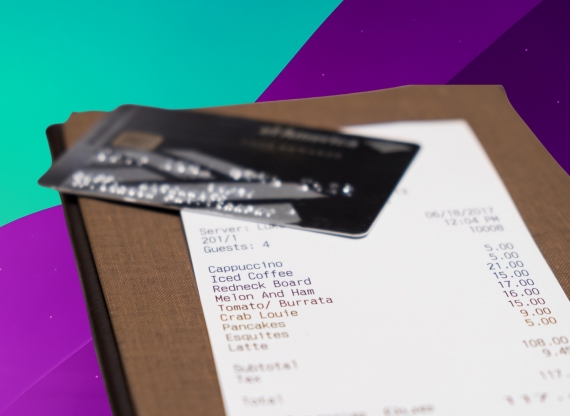In a sweeping move set to reshape employee paychecks, the newly enacted One Big Beautiful Bill Act (OBBBA) introduces two significant federal tax deductions for hourly workers: one for overtime pay and another for tip income. Dubbed the “No Tax on Overtime” and “No Tax on Tips” provisions, these changes mean that from 2025 through 2028, many employees can exclude a portion of their overtime wages and tip earnings from federal taxable income. This offers a welcome tax break for workers across various sectors – from nurses and factory employees logging extra hours to servers and bartenders collecting tips. However, it also raises key wage-and-hour considerations for employers nationwide. Businesses of all kinds must navigate new payroll reporting requirements, adjust withholding practices, and consider broader impacts on compensation structures and labor strategies. This alert provides an overview of the OBBBA’s deductions, explains who is affected, and outlines best practices for employers to ensure compliance.
What is the “No Tax on Overtime” Deduction?
The OBBBA’s “No Tax on Overtime” provision allows eligible workers to deduct qualified overtime pay – specifically the extra “half-time” premium wages for hours over 40 in a workweek – from federal income tax. Employees can claim an above-the-line deduction of up to $12,500 per year (or $25,000 if filing jointly). This temporary deduction applies to tax years 2025 through 2028 and phases out for high earners (those with over $150,000 in modified adjusted gross income, or $300,000 for joint filers). No itemizing is required to claim this benefit.
What Overtime Qualifies?
The law narrowly defines “qualified overtime compensation” to include only overtime pay required under the Fair Labor Standards Act (FLSA) – meaning hours worked beyond 40 in a week for non-exempt employees. Overtime or bonus pay not mandated by FLSA, such as additional pay under state daily-overtime laws or union contracts (unless those hours also exceed 40 in the week), does not qualify. Similarly, extra pay for exempt employees is not “qualified.” In essence, the tax break applies only to the standard time-and-a-half overtime premium required by federal law.
Income Tax vs. Payroll Tax:
It is crucial to understand that “no tax on overtime” refers only to federal income tax. These wages remain subject to payroll taxes (Social Security and Medicare/FICA). Employers must continue withholding and matching FICA taxes on overtime pay as before. The benefit comes later, as a lower income tax bill or larger refund when the employee files their tax return. For example, an employee in the 22% tax bracket earning $5,000 in FLSA-required overtime premium pay could save about $1,100 in federal income tax, though FICA taxes still apply.
Immediate Effect on Employees:
Employees will not see an immediate change in net pay from this provision in 2025. The OBBBA directs that income tax withholding tables will not be adjusted until 2026. For 2025, employers should continue to withhold federal income tax on overtime pay as normal. Workers will recoup the benefit when they file 2025 taxes. Starting in 2026, the IRS is expected to revise Form W-4 and withholding formulas, potentially leading to a slight increase in regular paychecks for those who consistently work overtime. Until then, HR should communicate that the tax break will appear at tax time, not in weekly paychecks.
Example: An employee earning $20/hour works 50 hours. Their FLSA overtime premium is $100 (10 hours x $10/hour extra). This $100 would be eligible for the tax deduction. While modest weekly, these savings accumulate, offering substantial tax relief for professions with frequent overtime, up to the $12,500 annual limit. This effectively makes overtime pay more valuable to the employee.
What is the “No Tax on Tips” Deduction?
The OBBBA’s “No Tax on Tips” provision allows tipped employees to deduct a substantial portion of their gratuity income from federal taxation. Workers in qualifying occupations can exclude up to $25,000 per year in tip income from their federal taxable income (available 2025 through 2028). Similar to the overtime deduction, this benefit phases out once income exceeds $150,000 ($300,000 for joint filers). It is an above-the-line deduction open to both itemizers and non-itemizers; married individuals must file jointly.
Which Tips Qualify?
The law targets traditional tipping situations. To be deductible, tips must be voluntary (cash or credit-card tips left by customers or distributed through tip pools). Mandatory service charges or automatic gratuities do not count. The worker must also be in an occupation that “customarily and regularly” receives tips. The Treasury Department will publish a list of such occupations by October 2, 2025, likely including roles like waitstaff, bartenders, and hotel service staff. This provision aims to prevent employers from reclassifying non-tipped jobs for tax advantages.
ertain professionals are explicitly excluded from using the tip deduction, even if they receive gratuities. The OBBBA bars anyone working in a Specified Service Trade or Business (SSTB) – including fields like law, accounting, healthcare, and consulting – from claiming the tip deduction. This focuses the tax break on service industry workers.
Reporting and Compliance:
Employers face new reporting duties for tip income. While employees previously reported tips for payroll tax purposes, employers must now report total annual “qualified tip income” for each worker on an information return, likely a new line or box on Form W-2. For 2025, a transition rule allows employers to approximate this amount by any reasonable method. Employers should ensure all tips are properly recorded, as these figures will determine employee deduction eligibility. Employees are still required to report 100% of their tips. The new law incentivizes honest reporting of tips, as up to $25,000 of reported tips can be earned free of federal income tax. However, Social Security and Medicare taxes (FICA) still apply to all reported tips.
Impact on Tipped Employees:
This deduction can significantly increase the take-home pay of hospitality and service workers. A full-time waiter or bartender could save several thousand dollars per year in taxes. The provision may also influence industry practices, potentially renewing enthusiasm for tipping models over fixed service charges. Additionally, ongoing debates over the “tip credit” and minimum wage could be affected, with potential pressure on jurisdictions to reconsider rolling back tip credits. Employers in tipped industries should monitor both federal tax guidance and state labor law developments.
Read full article: https://natlawreview.com/article/unlocking-savings-new-tax-breaks-overtime-and-tips-what-employers-need-know




